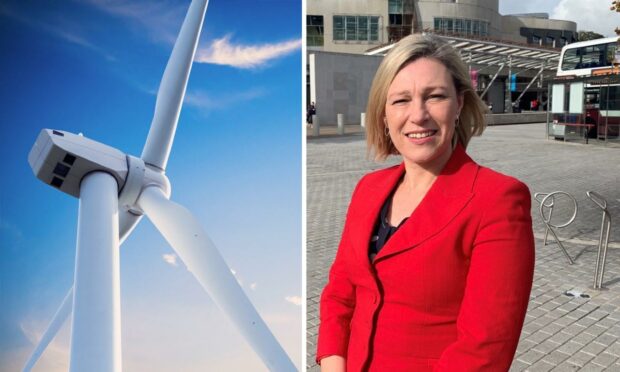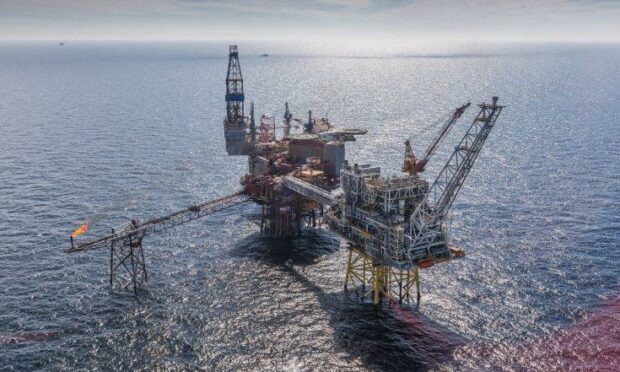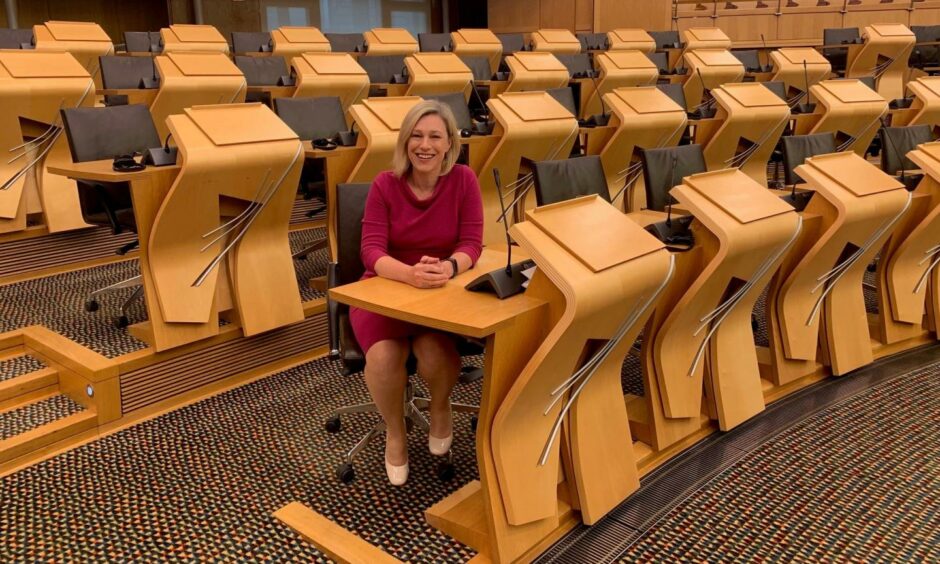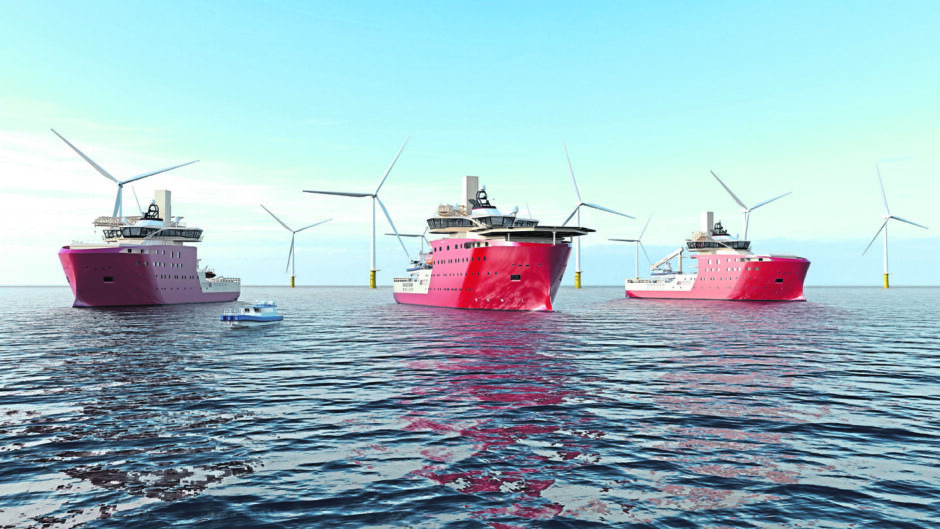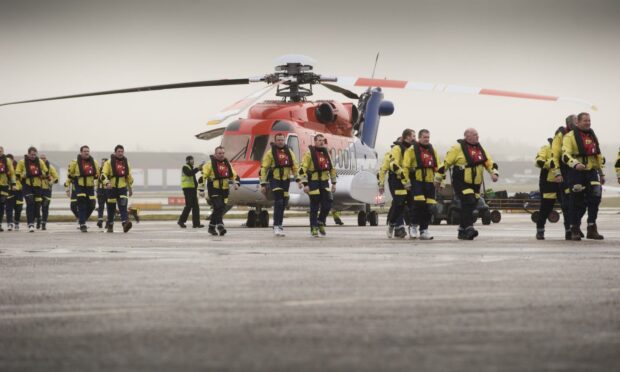A survey led by an SNP politician has found just one in 10 workers in the North Sea oil and gas industry say they have enough opportunities to switch to renewables.
Gillian Martin called for action from government and sector leaders after hearing testimony from more than 500 oil and gas employees as part of her study.
And the Aberdeenshire East MSP said there was now an urgent need for a series of high level summits to break down the various barriers she found was holding back the “just transition” away from fossil fuels to cleaner energy sources.
‘Discrimination’
In response to the survey, workers claimed renewable energy firms “discriminated” against applicants with a background in the offshore sector.
They blamed a perception of higher pay expectations and a fear they could be a “flight risk” if a new oil and gas opportunity was offered.
Many workers in oil and gas don’t feel that they are being as supported as they would like to transition into renewable sectors.”
– Gillian Martin’s report
They also highlighted the high cost of retraining, pointless duplication of certificate requirements, and a lack of information on job opportunities and support.
The findings are being shared with the UK and Scottish Governments, as well as various industry bodies.
“It is clear from the issues raised that many workers in oil and gas don’t feel that they are being as supported as they would like to transition into renewable sectors,” the MSP’s report concluded.
The survey results can be revealed in a time of uncertainty for the future of North Sea oil and gas, heightened by the fall-out from Russia’s invasion of Ukraine.
Concerns were also raised in recent weeks about a lack of detail on the SNP-Green government’s commitment for a £500m Just Transition Fund for the north-east.
The publication of an associated strategy document was delayed by ministers last week.
I had a reply back from a company telling me I was suitable for job, but they didn’t want someone from oil and gas.”
– Rig electrician with 12 years experience.
Ms Martin exclusively revealed the findings of her survey with us as the dossier was being sent out to decision-makers.
Calling for action, the MSP said: “On the one hand, renewables are saying they’ve got skills shortages and want to actively recruit and cast their net out to people in the various disciplines in oil and gas.
“But we’re not seeing them coming through. Why not? Where is the disconnect?
“The only way to fill that gap is to have both industries, and the workers from both industries, and the industry bodies, and both the governments, in the same room speaking about this, and thinking ‘where are the barriers? Let’s take them down’.”
Asked if she meant a summit, the Aberdeenshire East MSP said: “That’s what is required, and not just one, multiple times, until we have ironed out the issues.
“Because I think this is the key year this has to get done in.”
What does the oil and gas survey say?
Of 521 workers who responded to the survey, only 48 said there were enough opportunities for oil and gas workers to transfer into renewables.
Almost half, or 47%, felt that their career experience in oil and gas had caused challenges for them in gaining other employment, with some alleging discrimination.
Gary, a rig electrician with 12 years experience, said: “I have personally had a reply back from a company telling me I was suitable for job, but they didn’t want someone from oil and gas. Which I found unbelievable.
“It’s discriminatory and recruiters and companies are being allowed to do it.”
One of the biggest concerns in the survey, which was carried out last summer, related to duplication of certificates required to work in both the renewables sector and oil and gas.
Nathan, a chemist with 20 years experience, said: “The skills are almost identical but the courses do not cross over.”
One rigger, who had worked in the industry for 15 years, said: “There are now too many disparate qualifications that are basically the same thing by a different body.”
Ms Martin’s survey comes as the Scottish Conservatives pile the pressure on the SNP over claims the Scottish Government has turned its back on North Sea oil and gas in recent months.
‘Too important to be political’
But the Nationalist MSP said: “This is too important to be political, I feel.
“The reason why I did it is because I’ve got friends and constituents who talk to me about this all the time.
“It came to a head particularly when I was speaking to a friend of mine who had to leave Scotland to get a job, after spending a significant amount of money in retraining for what he thought would be an avenue into renewables.
“He wasn’t even getting interviews. I thought, ‘how widespread is this?”
Ms Martin said a just transition remained “totally achievable”, because it had to be, but urged decision-makers and the industries involved to quickly address the issues highlighted in the survey.
Describing the urgency, Ms Martin said: “We’re coming out of the pandemic. People are reassessing what they might want to do in their working lives, maybe as a result of that.
“There’s also quite a lot of pressure, I think, on people about what they might want to do in the future, in terms of what industries they might want to go into.
“And also, in the north-east, we don’t want people leaving.
“We don’t want people like my friend having to go to Baku to work, when he has got the transferrable skills that can mean that he stays with his family in Scotland.
“That’s just one example that I’m sure is replicated a lot.”
